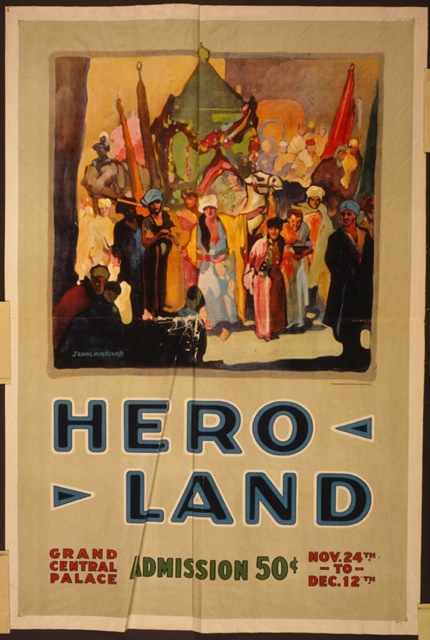Story Masters and Hammer Heads
A couple of years ago, I spent a valuable weekend at a writing workshop, Story Masters, with three terrific authors who are also outstanding teachers:
- James Scott Bell is a novelist and Writer’s Digest favorite.
- Donald Maass is a literary agent and author of several outstanding craft books.
- Christopher Vogler is a story consultant and Hollywood icon for his work interpreting, among other things, Joseph Campbell’s The Hero with a Thousand Faces for screenwriters.
Within the constraints of this brief post, and with apologies for this excruciating oversimplification, each man analyzes storytelling through different lenses.
- James Scott Bell is a master of structure, and his ideas lean naturally toward writing along the lines of Dwight Swain’s Motivation-Reaction Units (MRUs). This (non-intuitive) technique emphasizes the conflict in each scene and the outcome of the conflict (usually bad for the point-of-view character). The POV character’s Motivation to achieve something in a scene – to act, which is external and objective – causes a Reaction, which is internal and subjective. The POV character’s Reaction creates a new Motivation. Lather, rinse, repeat.
- Donald Maass emphasizes the development of tension among characters and their circumstances. His techniques focus on creating compelling characters and forcing them to confront increasingly insurmountable challenges, both large and small as well as internal and external. As these challenges combine and compound during the course of the story, they build situations that resound and rebound (that is, they resonate) in the minds of readers. This naturally creates mounting tension, which forces the reader to continue turning pages until the author resolves the converging crises in the climax.
- Christopher Vogler is the go-to guy on concepts related to the hero’s journey structure of storytelling. These concepts emphasize the structural commonality of centuries of storytelling – from the pre-historic Gilgamesh to the Homeric epics, through fables and fairy and folk tales of many cultures, and up to contemporary Tolkien/Lewis fantasy epics and classic films like Casablanca and Star Wars. The journey removes a hero from the comforts of her regular world. It forces her into an adventurous world in which she must recruit allies and survive a series of increasingly difficult challenges. By overcoming all those obstacles, the hero settles the disruption threatening her regular world and is allowed to return to it.
(You can overcome this rude compression by studying these instructors’ books or attending next year’s Story Masters in Seattle. More below.)
At dinner one evening, I experienced my own private MRU when an author challenged me to declare my allegiance to one of these models of storytelling. Because I’m a polite and respectful sort of guy, my reaction was demurral: “I don’t believe any of these structures are mutually exclusive.”
Had I been somewhat less inclined toward the good manners my parents taught me, I might have said something like this:
Creating silos in which writers must isolate themselves is the foolish hobgoblin of little minds. Demanding allegiance to one or another is a classic demonstration of Charles Philip Issawi’s admonition:
“In any dispute, the intensity of feeling is inversely proportional to the value of the issues at stake.”
There is absolutely no reason that a writer cannot pick and choose among these models to achieve his or her intended effect. Good writing is based on knowing what tools are available to deliver an outstanding reading experience. A great writer has a big toolkit, knows how to choose the right tool for the job, and has a greater ability to adapt to new and unique circumstances.
If you’re a hammer, everything looks like a nail.
Story Masters is a great investment for expanding your toolkit. And if you can’t wait for the next regularly scheduled conference, here are some other resources:
Writing craft books by James Scott Bell
Plot & Structure: Techniques And Exercises For Crafting A Plot That Grips Readers From Start To Finish
Writing Fiction for All You’re Worth: Strategies and Techniques for Taking Your Fiction to the Next Level
Revision And Self-Editing: Techniques for Transforming Your First Draft into a Finished Novel
The Art of War for Writers: Fiction Writing Strategies, Tactics, and Exercises
Writing craft books by Donald Maass
Writing 21st Century Fiction: High Impact Techniques for Exceptional Storytelling
The Fire in Fiction: Passion, Purpose and Techniques to Make Your Novel Great
Writing the Breakout Novel: Insider Advice for Taking Your Fiction to the Next Level
Writing the Breakout Novel Workbook: Hands-on Help for Making Your Novel Stand Out and Succeed
The Breakout Novelist: Craft and Strategies for Career Fiction Writers
The Career Novelist: A Literary Agent Offers Strategies for Success
Writing craft books by Christopher Vogler
The Writers Journey: Mythic Structure for Writers (3rd Edition)
Memo from the Story Department: Secrets of Structure and Character with David McKenna
Myth & the Movies: Discovering the Myth Structure of 50 Unforgettable Films with Stuart Voytilla
The Hero’s 2 Journeys with Michael Hauge
The Virgin’s Promise: Writing Stories of Feminine Creative, Spiritual and Sexual Awakening with Kim Hudson





Leave a Reply